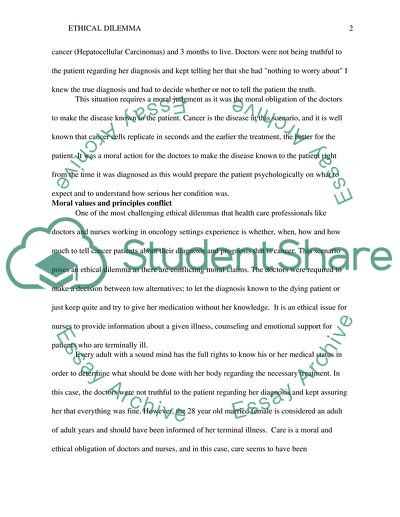Cite this document
(Ethical Dilemma in Oncology Research Paper Example | Topics and Well Written Essays - 1750 words, n.d.)
Ethical Dilemma in Oncology Research Paper Example | Topics and Well Written Essays - 1750 words. Retrieved from https://studentshare.org/health-sciences-medicine/1793140-ethical-dilemma
Ethical Dilemma in Oncology Research Paper Example | Topics and Well Written Essays - 1750 words. Retrieved from https://studentshare.org/health-sciences-medicine/1793140-ethical-dilemma
(Ethical Dilemma in Oncology Research Paper Example | Topics and Well Written Essays - 1750 Words)
Ethical Dilemma in Oncology Research Paper Example | Topics and Well Written Essays - 1750 Words. https://studentshare.org/health-sciences-medicine/1793140-ethical-dilemma.
Ethical Dilemma in Oncology Research Paper Example | Topics and Well Written Essays - 1750 Words. https://studentshare.org/health-sciences-medicine/1793140-ethical-dilemma.
“Ethical Dilemma in Oncology Research Paper Example | Topics and Well Written Essays - 1750 Words”, n.d. https://studentshare.org/health-sciences-medicine/1793140-ethical-dilemma.


